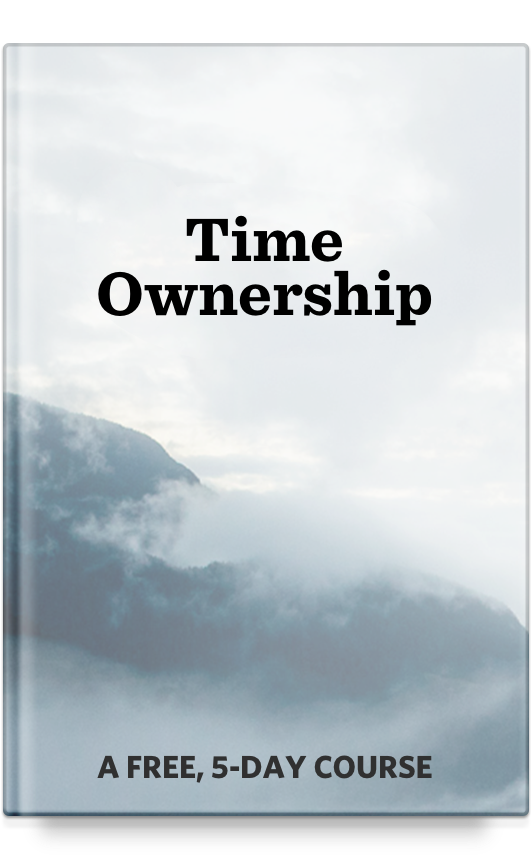My guess is you’ve got a handful of ideas you’ve been sitting on for a while.
Ideas for writing, business, community, creative endeavors, projects around the house — lots of ideas. Maybe you’ve written them down, maybe you haven’t.
How long have you been sitting on this goldmine of opportunity? Are you waiting to be told you have brilliant ideas?
If you’re waiting on motivation it may be a while.
Motivation is fickle. It’s not something we have direct control over, but it is something we can influence.
Decisiveness Creates Motivation
The fastest way to create motivation is by making a choice.
While we may not be able to choose to be motivated directly (trust me, I’ve tried), we can back into it by narrowing in on a target.
- A choice on where to start
- A choice between options
- A choice to stop
- A choice to keep going
In most creative endeavors, projects, or goals, motivation is not likely to find you. If you’re waiting for inspiration, you will likely be disappointed.
Motivation follows decisive action.

Indecision Kills Motivation (And Momentum)
If decisiveness creates motivation, nothing kills it more than indecision.
- Ambiguity causes hesitation and second-guessing
- Motivation thrives under clear direction
It’s hard to feel motivated about something that hasn’t been decided yet. A variety of options on the table with multiple outcomes is usually stress-inducing, not motivating. There is a process to making decisions, but the longer a decision is left unresolved, the more room there is for ambiguity.
Motivation does not necessarily need absolute clarity. It just needs direction. You may not have all the details solved yet, but there is resolved agreement in the direction you will head.
When you’re feeling stuck and prone to procrastination, there may be a decision you’ve been avoiding.
Reasons We Put off a Decision
Fear of Things going Sideways: This concern can be irrational, but not always. It’s that fear that you’ll buy the car and 30 days later the transmission fails. Or maybe it’s committing to a new business venture and finding out it is not what you envisioned. There is merit for this hesitation, but ultimately you must not let the fear of ”what ifs” keep you from making a decision. Be thorough in your vetting process, then make the call.
Fear of Changing our Mind Later: This also has an inherent reality baked in. You don’t always know what you’re getting into with the experience of having tried something. We go with one option and three weeks later we wish we would have gone with the other. In limited cases, the outcomes are set in stone and there is no going back. In many instances, the only damage to changing our mind later is having to admit that we changed our mind. The bottom line is that changing your mind is not something to be afraid of. You may end up changing your mind down the road, but don’t let that keep you from making a decision today. Sometimes, finding the right choice requires trying out the wrong one.
Fear of Missing The Perfect Choice: This one gets me the most. At the root of this objection is perfectionism disguised as noble pickiness. Perfectionism says if it’s not the perfect option in every regard, it’s the wrong option. Let’s be honest — there are no perfect choices. There are always going to be trade-offs.
Make the Best Decision with What You Know
Eventually, we must choose because not making a choice is still a choice.
Silence the fears of perfectionism and remorse and take the plunge. Exploring our options is helpful to an extent, but eventually we must decide.
So once you have sufficiently explored your options, the question you should be asking yourself is not: “What, of my list of competing priorities, should I say yes to?” Instead, ask the essential question: “What will I say no to?” This is the question that will uncover your true priorities. — Greg McKeown
Ultimately, you are making the best decision with what you know. If you knew the best option, you wouldn’t be spending this much time on the decision in the first place. When it’s a close call, you can only rely on what you know and the input of a few trusted friends.
If you’ve done all you can to explore your options and invited trusted feedback, then it’s time to make the decision. Unless you have the gift of seeing the future, we are unable to know what is on the other side of a choice, and it’s often that choice that brings the clarity that we need. Give yourself grace when reflecting on a past decision. Learn from mistakes, but remember you made the best decision you could with what you knew at the time.
Motivation is unlikely to find you flat-footed. Explore your options, get the trusted feedback of a select few if necessary, then make the choice. Motivation will follow. Instead of waiting for motivation, create your own by making a defiant choice.
Update: You can now read part two of this article, Don’t wait for Clarity.
